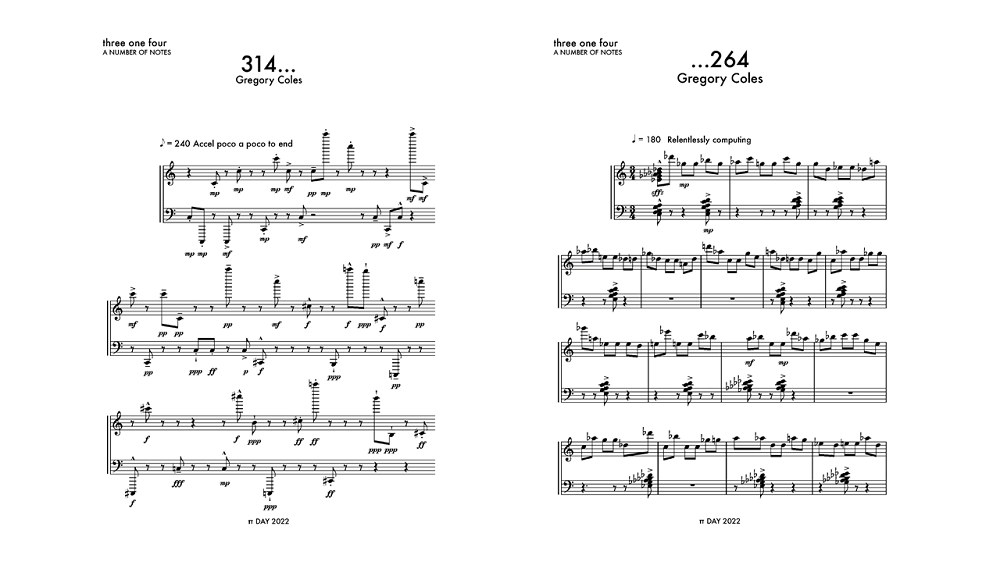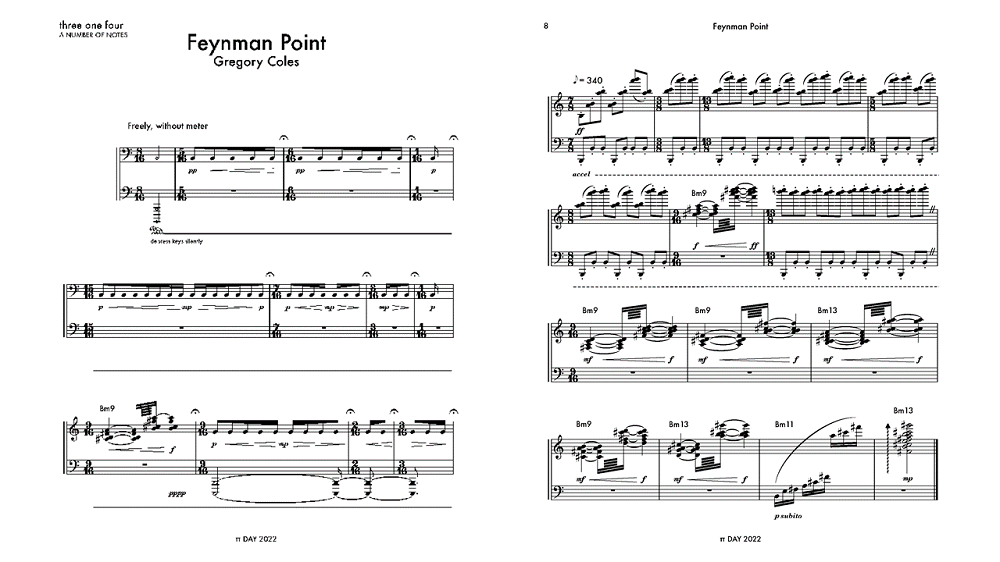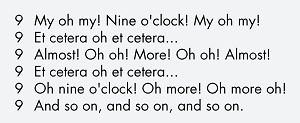
Every March 14th, GSC scientist and data visualization expert, Martin Krzywinski, finds a creative way to recognize and celebrate Pi Day. This year, in collaboration with Gregory Coles and Emma Beauxis-Aussalet, Martin produced a music album based on the iconic number.
”three one four: a number of notes is a musical exploration of how we think about mathematics and how we feel about mathematics,” says Martin. “It tells stories from the very beginning (314…) to the end of (...264)”—or what’s currently known as the end of—the 62.8 trillion digits of Pi.

There are six pieces in the album, each one inspired by some aspect of math such as equations (Wallis Product), repetition (nn) and zeroes (null). In a conversation on the Numberphile Podcast, Martin described the piece composed in honour of the great physicist Richard Feynman as one of his favourites.
“Richard Feynman had this joke where he said ‘wouldn’t it be wonderful to memorize Pi up to where six nines occur in a row so that when you recited Pi, you could finish with nine, nine, nine, nine, nine, nine and so on’, which I think is a hilarious math joke,” says Martin. In the interview, composer Gregory Coles goes on to explain how he used the first 762 digits of Pi (where the first sequence of six nines appears) to develop the time score for Feynman Point.

According to the Pi Day 2022 post on Martin’s website, “the album is scored for solo piano in the style of 20th century classical music—each piece has a distinct personality, drawn from styles of Boulez and Stockhausen (314…), Ligeti (Feynman Point), Reich and Glass (Wallis Product), Satie (nn), Feldman (null), Powell and Monk (...264).”
Accompanying each piece is a piku (or πku), a poem whose syllable count is determined by a specific sequence of digits from π—a concept Martin came up with for 2020 Pi Day. The piku collection, written by Emma Beauxis-Aussalet, follows a syllable count that matches the theme of its track. For example, The Feynman Point piku has six lines of 9 syllables.

“All of the visualizations I do have a very strong component of my love of math and in my interpretation as a human being of the digits and the experience I have with them,” says Martin, “and I wanted the music to reflect it.”
Listen to the playlist, read the piku collection and download the musical scores.
To learn more about the underlying musical ideas, listen to Martin and Greg’s conversation with the host of the Numberphile Podcast.
To learn about each track in detail, including extensive composer’s notes, visit Martin’s web page.
To support the project, please visit Bandcamp listen on Spotify and Tidal.